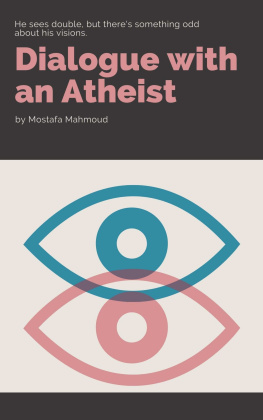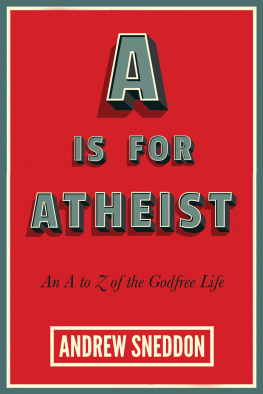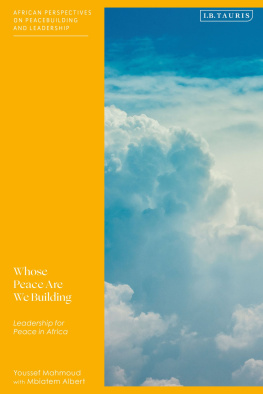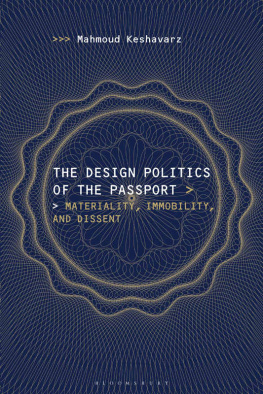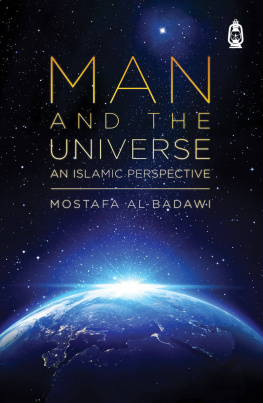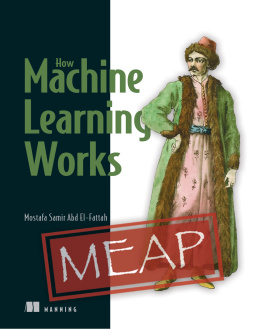Mostafa Mahmoud - Dialogue with an Atheist: Learn more
Here you can read online Mostafa Mahmoud - Dialogue with an Atheist: Learn more full text of the book (entire story) in english for free. Download pdf and epub, get meaning, cover and reviews about this ebook. year: 2021, publisher: UNKNOWN, genre: Religion. Description of the work, (preface) as well as reviews are available. Best literature library LitArk.com created for fans of good reading and offers a wide selection of genres:
Romance novel
Science fiction
Adventure
Detective
Science
History
Home and family
Prose
Art
Politics
Computer
Non-fiction
Religion
Business
Children
Humor
Choose a favorite category and find really read worthwhile books. Enjoy immersion in the world of imagination, feel the emotions of the characters or learn something new for yourself, make an fascinating discovery.
- Book:Dialogue with an Atheist: Learn more
- Author:
- Publisher:UNKNOWN
- Genre:
- Year:2021
- Rating:5 / 5
- Favourites:Add to favourites
- Your mark:
- 100
- 1
- 2
- 3
- 4
- 5
Dialogue with an Atheist: Learn more: summary, description and annotation
We offer to read an annotation, description, summary or preface (depends on what the author of the book "Dialogue with an Atheist: Learn more" wrote himself). If you haven't found the necessary information about the book — write in the comments, we will try to find it.
Dialogue with an Atheist: Learn more — read online for free the complete book (whole text) full work
Below is the text of the book, divided by pages. System saving the place of the last page read, allows you to conveniently read the book "Dialogue with an Atheist: Learn more" online for free, without having to search again every time where you left off. Put a bookmark, and you can go to the page where you finished reading at any time.
Font size:
Interval:
Bookmark:

 IN THE NAME OF ALLAH, THE BENEFICIENT, THE MOST MERCIFUL
IN THE NAME OF ALLAH, THE BENEFICIENT, THE MOST MERCIFUL 
Dar Al Taqwa Ltd.1994Second Edition March 2000ISBN 1 870582 09 8
All rights reserved. No part of this publication may be reproduced, stored in aretrieval system, or transmitted, in any form or by any means, electronic,mechanical, photocopying, recordingor other-wise, without the priorpermission of the publishers.
Translated by Mohamed YehiaPublished by:
Dar Al Taqwa Ltd.
7A Melcombe Street
Baker Street
London NW1 6AE
Email: dar.altaqwa@btinternet.com
Printed and Bound by:
De-Luxe Printers
245a, Acton Lane, Park Royal,
London NW10 7NR
Website: http://www.de-luxe.com
Email: de-luxe@talk21.com (for AppleMac files) or
Is Religion An Opium? ................................................................................................................................. 39
Islam and Women ....................................................................................................................................... 54
Is Pilgrimage A Pagan Rite?......................................................................................................................... 75
XVII ............................................................................................................................................................ 144
He Begot None, Nor Was He Begotten
My friend is a man who likes to argue and delights in talking. He thinksthat we, naive believers as we are, feed on illusions and miss the pleasuresand attractions of this world beguiling ourselves with Paradise and theHouris. He studied in France where he got a Ph.D. degree, consorted withHippies, and came to disbelieve in everything.
You say that God exists. The chief among your proofs is the law ofcausation which stipulates that every artefact, creature, or existent must havebeen brought into being by a maker, creator, or efficient cause: a piece offabric points to the weaver, a painting to the painter, an engraving to theengraver. The universe, according to this logic, is the most cogent proof of aPuissant God who created it.
Granted that we believe in this creator, arent we entitled, according to the same logic, to ask, Who created the Creator; who created that God youtalk about? Doesn't your own reasoning and in keeping with the same lawof causation lead you to this question? Now, What have you to say about thisdilemma?
I replied to him by making clear that his question was meaningless. Thereis no dilemma or anything of that sort. You grant that God is a Creator andthen you ask about who created Him making Him both creator and created inthe same sentence, which is a contradiction.
The other side of your questions meaninglessness is that you imagine thecreator as being subject to the laws which govern his creatures. Causation is alaw for us who live in space and time. God, who created space and time, isnecessarily transcendent in relation to both and it is an error on our part to think that he is bound either by them or by their laws. It is God who created the law of causation and we cannot consider Him as subject to the law Hecreated.
In this sophistry of yours you are like those dolls that, seeing they moveby springs, imagine that the human who made them must also derive hismotion from the action of springs. If they were told that he is self-moved,they would retort that it is impossible for anything to move spontaneouslysince everything in their world is moved by a spring. Just like them, youcannot imagine that God exists in His own Essence with no need of anefficient cause; and this is because you see everything around you in need ofsuch a cause. It is as if you thought that God needs a parachute to descendamong men or a fast car to reach His prophets; God is infinitely exaltedabove such conceptions.
The German philosopher, Immanuel Kant realized, in his Critique ofPure Reason, that the mind cannot comprehend infinite realities and that it isby nature fitted only to apprehend particulars. It is incapable of apprehendingsuch a universal or total existence as that of the divinity. God was known byconscience not by reason. Just as our thirst for water is a proof that it exists,our yearning for justice is proof to us that a just Being exists.
Aristotle followed the chain of causality tracing the chair from wood,wood from the tree, the tree from a seed, and the seed from the planter. Hehad to conclude that this chain which regresses into infinite time must havebegun with anuncaused cause, a primum mobile in no need of a mover, acreator who has not been created. This is the same thing we assert of God.
From another quarter, Ibn Arabi, the Muslim mystic, replied to thequestion as to who made the creator by saying that it can only occur to adisordered mind. According to him,it is God that substantiates existence andit would be corneous to point to existence or the universe as a proof of God.This is the same as saying that light indicates day and it would be a lopsidedargument to claim that day proves the existence of light.
God says in a Divine Utterance (Hadith Qudsi): It is I who aids inproving and finding, there is no proof leading to me.God is the proof which is in no need of another proof. He is" the selfevident Truth; and He is the evidence that substantiates everything. He ismanifest in order, precision, beauty, and regularity; in tree leaves, in thefeathers of a fawn, in the wings of the butterfly, in the fragrance of flowers,in the chanting of the nightingale, in the harmony of planets and stars whichmakes up that symphonic poem we call the universe. If we allege that all thiscame into being by chance, we would be like a person who believes thatblowing-up the types of a press into space can result in their spontaneousassembly into an authorless Shakespearean sonnet.
The Quran spares us all these arguments with a few, expressive words. Itsays without sophistry and in a decisive clarity:Say that God is one, the Eternal.He begot none nor was he begotten.None is equal to Him.***My friend continued to question me in his sarcastic tone:Why do yousay that God is one? Why shouldnt there be many gods sharing the workamong themselves?
I chose to reply to him not with the aid of the Quran but with the logic he accepts: that of science. My answer was that God is one because the entireuniverse is built out of one material and according to a unified plan. Theninety two elements in the Mendelev table are built from hydrogen and in thesame manner in which stars and suns flame-up in space; namely, by fusionand the emission of atomic energy.
All forms of life are built of carbon composites they are all charredwhen burned according to one anatomical plan. An anatomy of a frog, arabbit, a pigeon, a crocodile, a giraffe, and a whale reveals the sameanatomical structure in all. The same arteries, veins, cardiac chambers, andbones correspond in all of them. The wing of the pigeon is the fore-leg in thefrog: the same bones with only a slight transformation. The long neck of the giraffe contains seven vertebrae;we find the same number in the hedgehogsneck. The nervous system in all consists of the brain, the spinal cord, and themotor and sensory nerves. Their digestive apparatus contains the stomach,the duodenum, and the small and large intestines, the genital apparatus havethe same components: the ovary, the uterus, the testicles and their ducts;while the urinary system in all consists of the kidney, the uriter, and thebladder. The anatomical unit in each of these creatures is the cell. Whetherwe are dealing with plants, animals, or humans, we meet with the samefeatures; they all breathe, breed, die, and are born in the same way.
Font size:
Interval:
Bookmark:
Similar books «Dialogue with an Atheist: Learn more»
Look at similar books to Dialogue with an Atheist: Learn more. We have selected literature similar in name and meaning in the hope of providing readers with more options to find new, interesting, not yet read works.
Discussion, reviews of the book Dialogue with an Atheist: Learn more and just readers' own opinions. Leave your comments, write what you think about the work, its meaning or the main characters. Specify what exactly you liked and what you didn't like, and why you think so.

